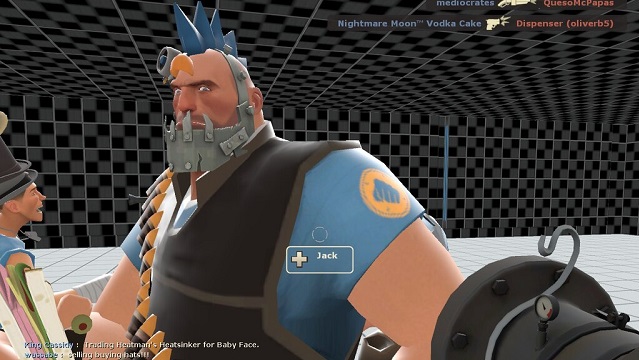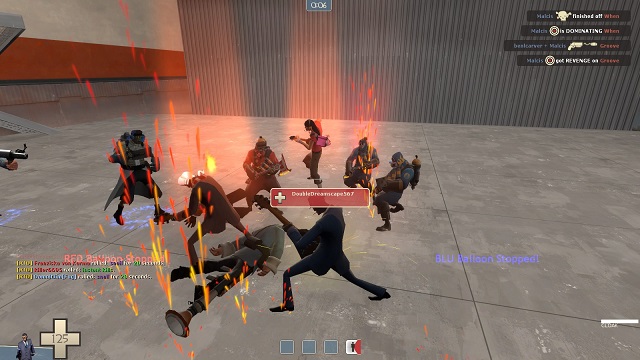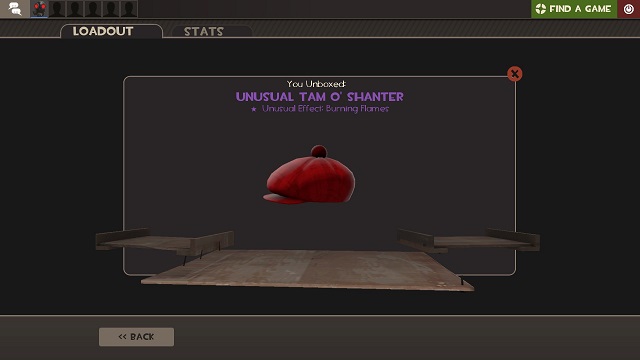Team Fortress 2 recently received an update. It’s the kind of newness that players have come to expect, even as new content gets less and less frequent. There were 22 new cosmetic items to collect, ranging from a toaster hat to a literal meme. Then, sometime around 3 AM EST on Friday, hat traders began to realize that something was amiss. Crates suddenly offered guaranteed Unusual-level items, something that normally only has a 1% chance of appearing. News spread quickly, all at a time when the developers at Valve were sleeping. For 12 hours, there was a free for all. Hats flooded the marketplace, long-time players made bank on otherwise useless crates, and prices across the board began to drop. While Valve has made all these ill-gotten gains untradeable, the gaff could have serious ramifications for what has been Valve’s biggest moneymaking endeavor. And thus, marked the Team Fortress 2 Crate Depression and how one bug almost tanked Valve’s longest-running economy.
Team Fortress 2 Crate Depression | Learning a trade

If your familiarity with loot boxes and in-game cosmetics started with Overwatch a few years ago, you won’t be familiar with the mad system at the heart of Team Fortress 2. First released just shy of 12 years ago, Valve’s multiplayer shooter pretty much broke the seal on in-game loot boxes and recurrent user spending. Behind all the jokes about “Hat Fortress 2” and one-time use keys is a large group of traders who pump money into the game to this day. The system would be so successful that Valve would place it into its other games before eventually adding it to Steam itself with collectible trading cards. Before long, there was a cross-game web of scarcity that’s comparable only to cryptocurrencies in its complexities.
I know because I spent a good number of years participating in the fringes, mostly as a collector. I never went all the way into the weeds, but I learned enough to game the system. From idling in empty servers to gather item drops to using third-party websites to trade more efficiently, I did it all. Even on a small scale, I was able to turn hours of playing and collecting into free games and a complete set of Pyro hats. However, this was all on the budget of a kid in college without any real money to spend. No matter how many hours I dedicated, there was a tier above me. The high rollers trading flaming hats worth hundreds, sometimes thousands of dollars. They’re the same whales that so many games seek out nowadays with their own failed attempts at an economy. There’s just no beating the original.
ALSO: Steam Labs is exactly the kind of Valve move we’ve been waiting for
Of course, that was before what fans are now calling the Crate Depression. As you might imagine from an economic system based on cosmetic video game items, Unusuals are a status symbol. Their value comes from their scarcity, the guarantee that your particular combination is among the rarest hats out there. This flood of new items only drew from a subset of possible Unusual, but they did tap into some of the oldest. One of the easiest solutions would be to keep these items locked away from trading. While that would keep prices somewhat stable, that might not solve the entire issue. The genie is out of the bottle now. Valve has basically given a demonstration of what could happen at any time to the economies it has built.
Team Fortress 2 Crate Depression | It’s not (usually) Unusual

Will the high bidders return to a system proven to be less than impenetrable? Will Counter-Strike‘s knife traders and Dota‘s collectors take notice and start to lose faith? A system built on value crumbles if that value is undermined. It’s entirely possible that even if there is a fix in the short term, marketplace prices could drop across the board. That stretches out not just to Valve either. Plenty of games sell cosmetics similar to TF2‘s, and almost every game has trading cards. If prices drop everywhere, it affects every developer tied up in the marketplace. All these systems and transactions build upon the backbone of Team Fortress 2, and that backbone just started to crack.
Valve is often criticized for being complacent and that notion isn’t inaccurate. The Steam market is exactly why the company can afford to be. It’s a passive source of revenue that has afforded Valve the time to delve into VR and survive a disastrous launch last year. If even a fraction of buyers and sellers cash out and move on to greener pastures, it could see the first true hit to Steam’s finances in quite some time. Valve did move quickly enough that the Crate Depression shouldn’t destroy Team Fortress 2 entirely. However, its next move will have huge implications on both the TF2 community and the Steam ecosystem as it adapts to this bizarre turn of events.
Team Fortress 2 Crate Depression | Throwing a Golden Wrench into things

Whatever it ends up doing, hopefully Team Fortress 2 perseveres. It’s an odd duck in the industry, being both influential and oft-forgotten. Major content updates come only once every couple of years nowadays, but players don’t seem to mind. It’s rare for an online-focused game to retain a community even five years into its life. To have something like TF2 seeing active development after over a decade is just good for the industry. Sadly, a large part of the why it has stayed around is the financial investment so many players have put in. If Team Fortress 2 every truly dies, then everything falls apart.
The true positive to come out of all of this might just be in the example it sets, both for developers and players. In many ways, Team Fortress 2 is the canary in the coal mine for a lot of invasive moneymaking schemes pervading the industry. If that admired economy suddenly collapses, perhaps developers take a second look at how they’re trying to make money. Perhaps players see the example and stay away from similar systems going forward. Maybe microtransactions could return back to the free-to-play mobile experiences they came from. It may be unlikely, but it’s probably more likely than me ever unboxing a legitimate Unusual in Team Fortress 2.











